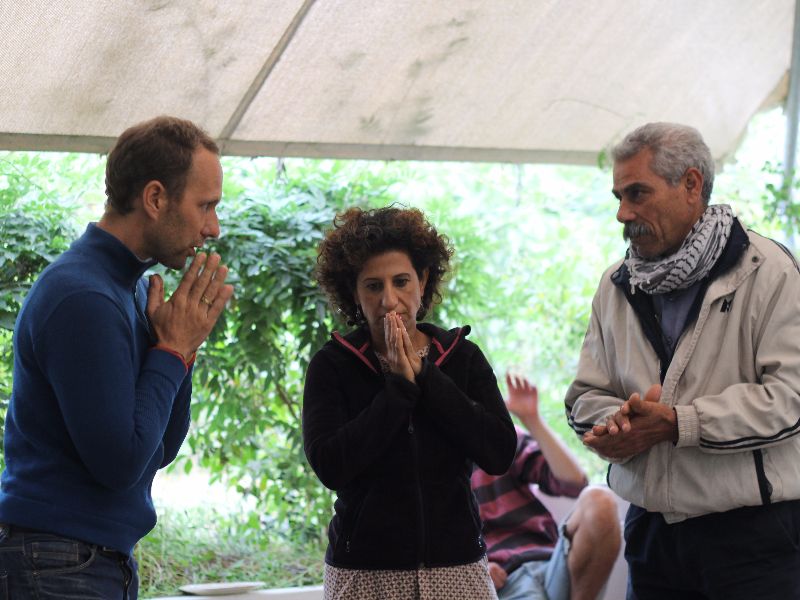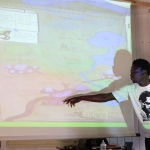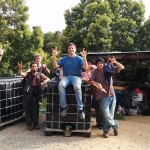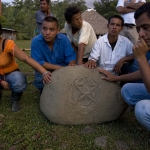Our Scholarship Fund supports peaceworkers from around the world in their education towards Healing Biotopes through funding their participation in events of the Global Campus, the Tamera Love School, ecological and technological trainings and other seminars in Tamera and other places. We empower people who are natural multipliers in their context, stress continuity and thus support the emergence of a core group for the planetary community.
Here we want to highlight three scholarship recipients from the Middle East:
Fayez Karimeh: A highly engaged engineer from Syria who fled his home country due to the ongoing war, and stayed in Tamera for several weeks. Already in Syria he experimented with biogas and other renewable energies. After the inspiration he received in Tamera he worked towards the vision of an energy-autonomy project in Sweden, designed for refugees like himself to find an anchor in meaningful work upon arriving in Europe.
Saad Dagher: A permaculturist and networker from the West Bank Humanistic Farm, Palestine, Saad Dagher came to Tamera for his research on cooperation with animals. Being in Tamera he was enthused by methods of farming that include live-stock as well as wildlife as potential cooperation partners. During his education at Tamera he created plans to bring teachers on this issue from Tamera to Palestine. A nonviolent approach to the challenge of wild boars is a daring step, especially in an Islamic culture. We see our support of him as a long-term investment for strengthening new paradigms around cooperation with animals in Palestine. He closely collaborates with Farkha, the first Ecovillage of Palestine, which holds the potential to become a Healing Biotope.
Fayez Taneeb: He runs the Hakoritna farm in the city of Tulkarem, located right between the Israeli West Bank separation wall and Israeli chemical factories built on Palestinian land. The building of the wall took a large percentage of his property from him, nevertheless he is working with the vision of an education center for sustainable and regenerative ecological approaches in cooperation with the agricultural faculty of Tulkarem and other institutions, who send their students to Hakoritna Farm for support and education. Nevertheless, Fayez’s efforts often find themselves in a political and social dead-lock situation. We regard Fayez’s project as a pivotal point of peacework in crisis-areas, and, if successful, it will be a solution for many Palestinian farmers who find themselves in similar situations.









Leave A Comment